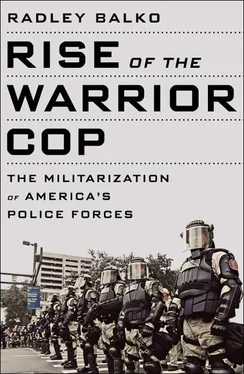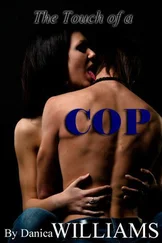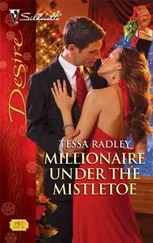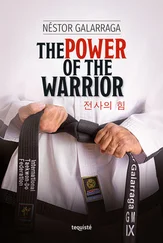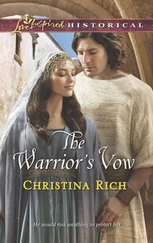Radley Balko
RISE OF THE WARRIOR COP

The Militarization of America’s Police Forces
I’ve always felt that I’d never officially feel like a writer until I could see a book I’d written sitting on my bookshelf. So I owe a lot of thanks to the people who have helped make that happen.
First, of course, thank you to my family and friends who have supported and encouraged me over the years. Thanks also to my agent, Howard Yoon, and my editor at PublicAffairs, Brandon Proia, for getting this specific book into print. I should also acknowledge Peter Kraska, whose scholarly research on SWAT teams has provided the empirical data to document this trend. Police militarization has largely been fueled by the drug war, so this book also owes a debt to Dan Baum, whose meticulously reported Smoke and Mirrors is the be-all, end-all history of the drug war through the 1990s. Thanks also to Samuel Walker, Norm Stamper, Tom Angell, Victoria Dunham, Killian Lapeyre, Jessica Greene, Drew Johnson, and Dan Wang, who contributed to this book with research, comments, referrals, and/or suggestions.
Other thanks go to Robin Wallace and Nick Schulz, the first two editors to publish me regularly. Thanks to P. J. Doland for hosting my blog for ten years—where I first reported many of the incidents you’ll read about in this book. Thanks to Ed Crane and David Boaz at the Cato Institute, who published my white paper on SWAT teams, gave me my first full-time job as a writer, and provided a terrific platform from which to write about this issue. Thanks also to current and former Cato folk Susan Chamberlin, Tim Lynch, and Gene Healy. Thanks to Nick Gillespie, who gave me my first journalism job at Reason magazine, and to Matt Welch, David Nott, Jesse Walker, and my other former colleagues at Reason . Thanks especially to Jacob Sullum, whose editing made me a better writer.
Other media/Internet/journalism people to whom I’m grateful for supporting, promoting, and publishing my work over the years: Glenn Reynolds, Andrew Sullivan, Ryan Grim, Arianna Huffington, Mark Frauenfelder, John Stossel, John Tierney, Ed Brayton, Emily Bazelon, and Dahlia Lithwick.
Finally, a group of people I’d like to personally thank for a variety of different reasons, personal and professional: Bobbie Murphy, Alyona Minkovski, David Pfaff, Jessie Creel, Liliana Segura, Stacie Moats, Courtney Knapp, Marta Rose, Kate Klonick, David Boeyink, and my dad, Terry Balko.
There are more instances of the abridgment of the freedom of the people by gradual and silent encroachments of those in power than by violent and sudden usurpations.
—JAMES MADISON
Are cops constitutional?
That may seem like an odd question—perhaps even a little nutty. Police forces have been part of the American criminal justice system since an eight-man department was established in Boston 175 years ago and the first large department was created seven years later in New York City. There has never been a serious constitutional challenge to the general authority of police or to the establishment of police forces, sheriff’s departments, or other law enforcement agencies, and it’s unlikely there ever would be. Any federal court would undoubtedly have little patience for such a challenge. And any hypothetical world where police were ruled unconstitutional would descend into chaos, probably rather quickly.
But in a 2001 article for the Seton Hall Constitutional Law Journal , the legal scholar and civil liberties activist Roger Roots posed just that question. 1Roots, a fairly radical libertarian, believes that the US Constitution doesn’t allow for police as they exist today. At the very least, he argues, police departments, powers, and practices today violate the document’s spirit and intent. “Under the criminal justice model known to the Framers, professional police officers were unknown,” Roots writes.
The general public had broad law enforcement powers, and only the executive functions of the law (e.g. the execution of writs, warrants, and orders) were performed by constables or sheriff (who might call upon the community for assistance). Initiation and investigation of criminal cases was nearly the exclusive province of private persons…. The advent of modern policing has greatly altered the balance of power between the citizen and the state in a way that would have been seen as constitutionally invalid by the Founders. 2
Roots’s argument may not be practical, but it’s certainly provocative. On at least one point, most criminologists agree with him: no one can say for sure whether the Founders would have approved of modern policing, but it’s relatively certain that they wouldn’t have recognized it. Criminologist and historian Samuel Walker writes in his book Popular Justice that in colonial America “most of the modern institutions” of today’s criminal justice system, “the uniformed police, prisons, probation, parole… did not exist at all.” The colonies did have appointed sheriffs and constables, and some also had marshals, but the duties associated with those jobs were largely administrative. Most were not salaried positions; instead, they received fees for tasks like serving subpoenas and collecting taxes. Since there were no fees associated with enforcing the criminal laws, for most sheriffs and constables that task was a low priority. Sheriffs did oversee the jails, but jails were primarily used to hold defendants until trial. Incarceration as punishment was rare. 3
Law enforcement in the eighteenth century was mostly a private affair. Community mores, social stigma, and shaming were the most important ways of maintaining order. Crime victims could bring their complaints to a grand jury, a panel of private citizens who had the power to indict. But the victim or his proxy was the party to initiate the charges. Professional full-time prosecutors didn’t exist. 4
Under this system, enforcement of the laws was a universal duty. Every male citizen had a civic responsibility to serve on a watch, act as a constable, serve on a grand jury, or join a posse when necessary to apprehend a dangerous criminal. The word police wasn’t used as a noun. It was a verb, meaning “to watch over or monitor the public health and safety.” 5
This isn’t to say that the colonial era’s more individualized, private methods of law enforcement would work today. As American towns grew from close-knit communities of people of similar ethnicities, with shared traditions, values, and religion, to cities whose diverse populations of immigrants had none of that in common, centralized police forces emerged to preserve order and enforce a common set of laws. Once neighbors stopped speaking the same language and worshiping in the same buildings, shunning and social stigmatization lost their effectiveness.
Even so, Roots’s question is a useful starting point for this book because it shows just how far we have come. The Founders and their contemporaries would probably have seen even the early-nineteenth-century police forces as a standing army, and a particularly odious one at that. Just before the American Revolution, it wasn’t the stationing of British troops in the colonies that irked patriots in Boston and Virginia; it was England’s decision to use the troops for everyday law enforcement. This wariness of standing armies was born of experience and a study of history—early American statesmen like Madison, Washington, and Adams were well versed in the history of such armies in Europe, especially in ancient Rome.
Читать дальше
